Are things getting better for specialists or are there just fewer firms around to compete? Our tables reveal who’s won what this year

These are far from easy times for specialist contractors, as anyone working in the sector will readily acknowledge. The rate of attrition is alarming, with the Specialist Engineering Contractors Group reporting that 10 specialist firms are going to the wall every day.
Put broadly, the problems facing specialist contractors split into two categories: winning work in the first place and then getting paid for it in a timely fashion, if at all. Unfortunately, on the latter point there doesn’t appear to be a great deal of good news to report. According to the latest state of the sector report from trade body the National Specialist Contractors Council: “Late payment continues to be the single most important factor affecting specialist contractors’ businesses.”
As for winning work, it will come as no surprise that as a result of the recession and the swingeing cuts to public sector capital budgets, there are simply fewer jobs out there. Competition has been fierce, with specialist contractors have found themselves bidding against seven or eight other firms for a single contract. However, there are tentative signs that the situation may have taken a turn for the better in the last year.
There are too many people trying to maintain their previous levels of turnover, which essentially means buying work. We’ve lost a few jobs to prices that are frankly suicidal and with risk profiles that are just crazy
David Hurcomb, NG Bailey
Ever since the economy fell off a cliff four years ago, competition for the remaining contractors has forced many specialists into ever more desperate courses of action. At a time of recession, main contractors tend to prioritise cost over all else in an attempt to protect their margins and as a result, some specialist contractors resort to so-called suicide bidding: pricing work under cost just to win work. Such tactics are clearly unsustainable - firms cannot survive long without profit or will suffer terminal reputational damage - but they are also damaging to the industry as a whole. David Hurcomb, chief executive of NG Bailey, says: “Certainly at bid stage I think there are too many people trying to maintain their previous levels of turnover, which essentially means buying work. We’ve lost a few jobs to prices that are frankly suicidal and with risk profiles that are just crazy.”
However, things may be changing. Several firms have told �ڶ����� that the last 12 months has seen a marked decrease in the number of competitors they face when bidding for work, although the reasons for that are not entirely clear. With 10 specialists contractors going out of business every day you might think that the reason for the diminishing competition is that there are simply fewer firms bidding for the same work.
But that isn’t necessarily the view of the industry. “The lists [of bidders] are longer than they were five years ago, but I think that they’ve shortened since last year,” says John Price, managing director of Keltbray. “But I don’t think that’s because people have gone bust.” Price says that in his experience companies are now reluctant to end up on a list of six or seven firms and are increasingly taking the view that if a procurer intends to draw up such a long list, then they’d rather not go through the pain of bidding at all.
Jurgen Wax, chief executive of the Lindner Group, agrees that the overcapacity issue is slowly improving, saying that tender lists are down to a maximum of three or four companies now, compared with seven or eight two years ago. However, he thinks that the turnaround has more to do with main contractors once again beginning to be more discerning. “Clients and main contractors are being a bit more selective again in terms of choosing the right partner,” he says. “People are becoming more aware of quality issues, reliability in terms of delivery and quality, and also the financial situation of their subcontractors. They need people who can finish the job.”
People are becoming more aware of quality issues, reliability in terms of delivery and quality, and also the financial situation of their subcontractors. They need people who can finish the job
Jurgen Wax, Lindner Group
Not everybody agrees that competition is dwindling. Hurcomb, for instance, says that his firm has yet to notice an appreciable decrease in the number of firms that end up on tender lists. But he agrees that main contractors are in the midst of rediscovering the value of putting quality over cost and places the phenomenon in the context of previous recessions. “I suspect that what will happen is that we’ll have a repeat of the nineties when parts of the supply chain failed and the risk stayed with the main contractor. The main contractors then tightened up their own controls.”
Hurcomb adds that by going for the cheapest bid or by trying to pass risk down to a specialist contractor without considering the financial situation of the company, main contractors are asking for trouble. After all, if a subcontractor goes bust, the disruption costs can be huge. “History teaches us that some of the main contractors will catch a cold, it will cost them a lot of money, and they will therefore start to think very carefully about who’s in their supply chain,” he says. “If a specialist contractor isn’t strong enough to take on the risk, then it ends up going straight back to the main contractor. They’re not really contracting out the risk at all.”
While it is obvious that there is going to be an oversupply of firms in any sector when the economy takes a turn for the worse, Rudi Klein, chief executive of the Specialist Engineering Contractors Group, believes that the specialist contractors market is particularly vulnerable. He says that because there are no barriers to entry into the industry, established, reputable firms end up competing with “people who operate out of a shed”. He adds: “There is no level playing field in the construction industry. Firms can come in willy-nilly.” While it may seem counter-intuitive for the boss of a trade association to argue, in effect, for fewer members, Klein says that the best interests of his members are served by restricting entry to the trade. “What we need is a statutory licensing scheme,” he says. “And being licensed means that you must be solvent, that you operate ethically and that you’re competent.”
Such solutions are not going to happen overnight. In the short term, specialist firms must hope that main contractors and clients increasingly consider the reputation and stability of the companies they appoint alongside cost. While competition is vital to the health of any market, an excess can have a detrimental effect on both reputable firms’ balance sheets and the reputation of the sector as a whole.



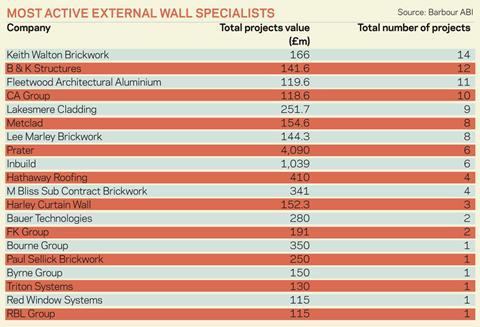
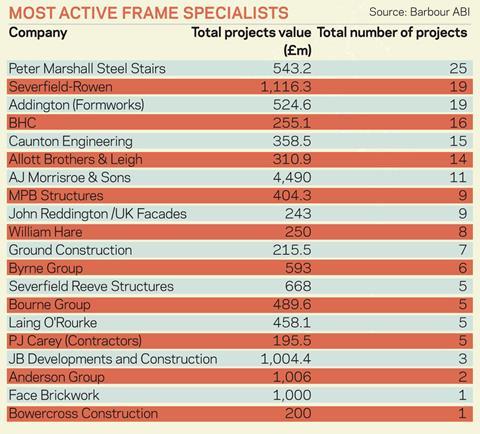
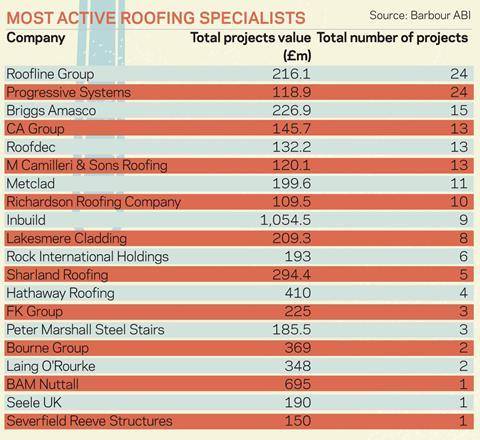



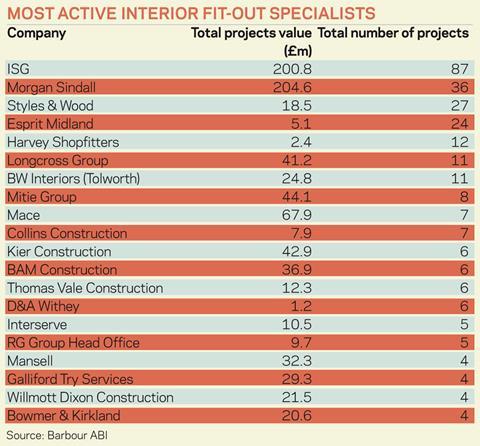
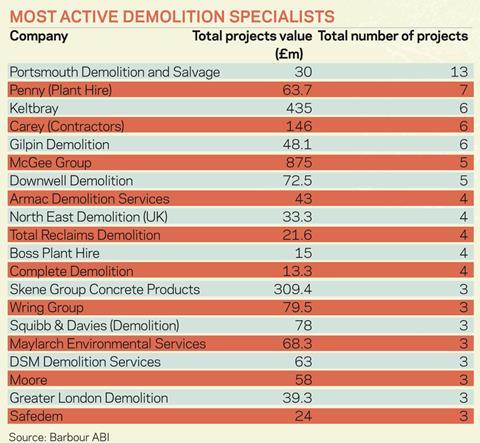
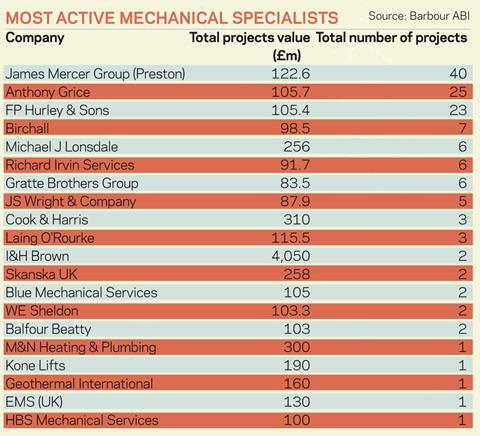
























No comments yet